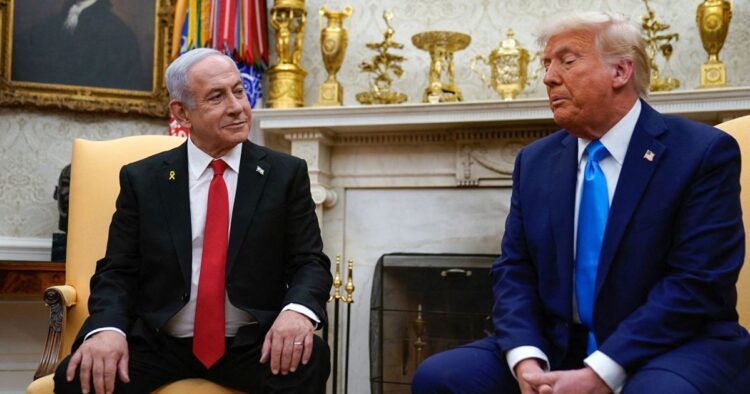On Thursday, US President Donald Trump signed an executive order to impose sanctions on the International Criminal Court (ICC), expressing concerns over the ICC’s investigations into Israel, a key US ally. Both the US and Israel are not members of the ICC, which issued an arrest warrant for Israeli Prime Minister Benjamin Netanyahu .
The ICC has accused Benjamin Netanyahu of alleged war crimes related to his military response in Gaza following the Hamas attack against Israel in October 2023. Tens of thousands of Palestinians, including children, were killed during the Israeli military’s response. Trump’s executive order opposes the ICC for engaging in what he calls “illegitimate and baseless actions” targeting the US and Israel.
The sanctions follow the ICC’s issuance of arrest warrants for Netanyahu and Israel’s former defense minister, Yoav Gallant. “The ICC has no jurisdiction over the United States or Israel,” the order states, adding that the court has set a “dangerous precedent” with its actions against both countries. Trump’s action came as Netanyahu was visiting Washington. On Tuesday, the two leaders held talks at the White House, and Netanyahu spent part of Thursday meeting with lawmakers on Capitol Hill.
The order states that the U.S. will impose “tangible and significant consequences” on those responsible for the ICC’s “transgressions.” Actions may include blocking property and assets and barring ICC officials, employees, and their families from entering the United States.
Human rights activists argue that sanctioning court officials would have a chilling effect and run counter to U.S. interests in other conflict zones where the court is investigating. “Victims of human rights abuses around the world turn to the International Criminal Court when they have nowhere else to go, and President Trump’s executive order will make it harder for them to find justice,” said Charlie Hogle, staff attorney with the American Civil Liberties Union’s National Security Project.

















Comments